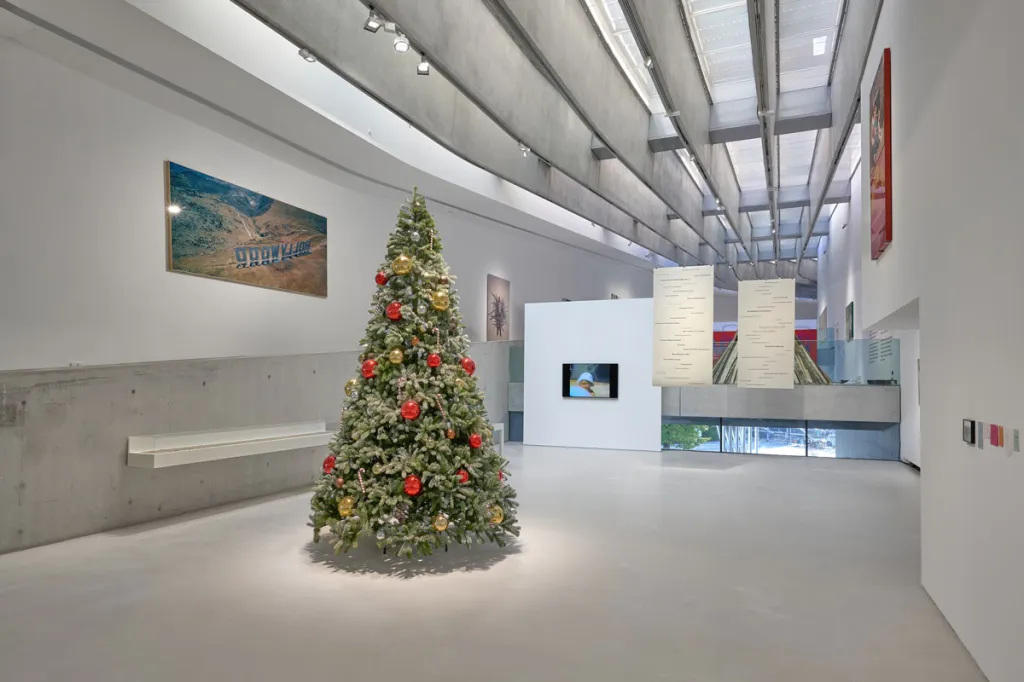A group of artists have withdrawn their work from an exhibition at one of Italy’s top contemporary art museums, citing the institution’s alleged “links to genocide in Palestine,” ahead of the show’s opening this week.
The seven artists—Tania Bruguera, Dora Garcia, Phil Collins and Siniša Mitrović, Alessandra Saviotti, and Gemma Medina—were to be featured in the highly anticipated exhibition “1+1: The Relational Years,” which is set to open at MAXXI in Rome today. The show, which also features the work of Vanessa Beecroft, Maurizio Cattelan, Felix Gonzalez-Torres, Pierre Huyghe, and Rirkrit Tiravanija, is set to survey relational aesthetics, which was first theorized as a movement in 1998 by Nicolas Bourriaud, who serves as the exhibition’s curator.
In an open letter published on the website of Nero Editions, a publishing house focused on artist’s books and museum catalogs, the artists write, “we have become aware of MAXXI’s stance on the ongoing genocide in Gaza and on the brutal occupation of Palestine, evidenced through its acceptance of funding from and recent collaborations with Eni, Leonardo s.p.a. and other entities directly complicit in these atrocities.”
Both Leonardo and Eni are Italian companies that have ties to Israel. Leonardo is the largest arms manufacture in the European Union and one of the largest in the world, according to the Stockholm International Peace Research Institute (SIPRI). Eni is an energy tech company that was one of six companies to receive a license for natural gas exploration in the Mediterranean Sea by Israel’s Energy Ministry in October 2023, according to a report by Reuters.
The open letter further explains that MAXXI “has a history of partnerships with companies directly involved in the genocide of the Palestinian people,” including Leonardo and Eni. This fall Eni supported a commission produced by MAXXI for Italian artist Maurizio Nannucci at the Gazometro G3 at the Eni Complex in Rome. Additionally, the letter’s footnotes cite four Israel-related programs organized by MAXXI in the past few years as further proof of the institution’s support of Israel, such as the 2018 exhibition “Tel Aviv, The White City” and an event in February 2024 titled “7 October 2023: Israel burns.”
The artists’ statement continues, “Far from isolated cases, such deeply troubling practices are part of a broader and persistent pattern of institutional choices which reveal the museum’s role in legitimizing zionist propaganda and narratives that enable the systematic erasure of Palestinian culture, history and life. We find this an unacceptable context in which to present our work.”
In addition to the artists’ withdrawal statement, five anti-Zionist activist groups—Galassia Antisionista, Vogliamo Tutt’Altro, BDS Roma, Il Campo Innocente, ANGA—have added their own statement. They note that Italy is the third largest supplier of arms, after the United States and Germany, to Israel, according to a 2024 study by SIPRI.
“We will not allow our work to serve institutions supporting and whitewashing the destruction of communities, the desertification of ecosystems, and the denial of Palestinian rights,” the activist groups’ portion of the letter reads. “Art is not neutral. Artists should not collaborate with MAXXI as long as the museum does not take a clear and public position against the genocide and cut partnerships with entities profiting from the zionist colonization of Palestine.”
These groups launched a boycott of several Italian cultural institutions this past April, including MAXXI, as well as the art fair Miart and the Rome museum Palazzo delle Esposizioni.
It is unclear if the artists’ work will actually be removed from the exhibition. ARTnews’s multiple requests for confirmation of their withdrawal and for comment to MAXXI went unanswered.
In their statement, the artists called for others to join the boycott of MAXXI until it “unequivocally denounces Israel’s genocide in Gaza and the colonization of Palestine, and commits to severing all ties with companies complicit in crimes against humanity.”
Their statement adds, “In light of MAXXI’s position and affiliations, we cannot in good conscience collaborate with such an institution and have therefore collectively withdrawn from the exhibition. This decision underscores our conviction that, as artists, we must take responsibility for the injustices our work might otherwise be used to justify, legitimize and art-wash. The struggle for Palestinian liberation does not end with the so-called current ‘peace plan,’ used as a thinly veiled pretext for continued oppression and colonial expansion. We must act accordingly to keep raising our voices—and make explicit where we stand, and what we oppose.”
